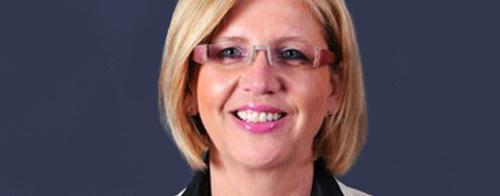Sylvia Hartl: Respiratory trainees often complain that specialist respiratory training does not fulfil their expectations in terms of quality standards of their education. Supervision and bedside teaching as well as clinical grand rounds of case presentations are available in most of the hospitals but a quality control of the training plans is often lacking.
Additionally we are facing a rapid accumulation of knowledge about pathomechanisms leading to changes in treatment standards, new medications and most importantly a changing clinical presentation of elderly patients with multiple co-morbidities. E-learning and simulation training are tools to complement conventional teaching and to exercise manual skills especially for beginners.
Internet-based learning can provide a homogeneous knowledge to an unlimited audience and is accepted by the young generation of trainees. Simulation training centres are expensive and therefore are not available in the majority of hospitals, but since we have predefined numbers of cases and interventions that have to be documented for the exam we will have to rely on case simulation to fulfil these obligations.
In countries like Austria, education is integrated within the daily workload of duties. Quality of training requires dedicated time and budget for teaching, similar to students at the University. Medical associations define prerequisites for medical training and define the qualification of a centre for respiratory training by the number of patients and the spectrum of lung diseases treated within one year, but there are no regular audits to assess the level of performance that the centre provides for the trainees.
Specialist exams at the end of the training, assess knowledge more than skills and there is huge variance in the expertise acquired from centre to centre or even between trainees of the same centre, studying different specialties.
This a challenge for a head of a Department and is a threat for the quality of care that we offer our patients. In the era of high-tech medicine, we should not have inequality in education. Clear standards of education that are expected in other fields, such as aviation for example, cannot be considered less important than medicine.
Adapting to faster changes of “state-of-the-art“ standards requires better training tools relying on internet searches, educational platforms, and information systems supported by IT- yet none of these systems will work without well-trained users.
Education is an investment in the future. The quality of a training centre is a guarantee for the selection of the best applicants. Feedback and direct observations of practical skills (DOPS) or mini- clinical evaluation exercises (Mini-CEX) are part of the structured yearly evaluation during the training period.
DOPS is a good method to evaluate skills like pleural drainage, thoracocentesis and other interventions like echocardiography and sonography. Mini-CEX allows the evaluation of clinical skills of family history, clinical examination or patient communication. The feedback allows us to define the level of responsibility and self-reliance in patient care.
The European Respiratory Society provides accreditation criteria for respiratory training centres, which could be a good guidance for every respiratory department even if it does not intend to apply for the accreditation due to different national accreditation standards.
The young generation of trainees expects clear aims to develop commitment to respiratory medicine and we need a hungry young generation with the potential for innovation and a willingness to invest in a hospital career. Therefore, we should aim to invest in training to reach the highest level of education achievable and challenge the talents of our respiratory trainees accordingly.
Respiratory societies contribute a lot to the standards of education and help to create a reliable pool of e-learning and skill training courses supporting the access to training even for partial training centres.
Medical teaching is not a minor matter but it is as important as the patient management and we have to make this very transparent in our time management within hospital organisation.
Relevant literature:
Loddenkemper R, Séverin T, Mitchell S et al. Adult HERMES: criteria for accreditation of ERS european training centres in adult respiratory medicine. Breathe 2010; 7: 170–188
